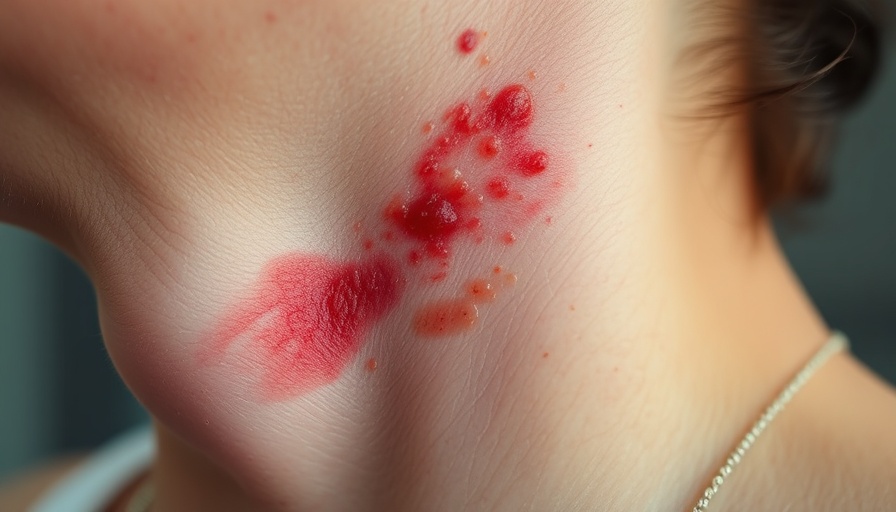
Understanding Skin Rashes: What You Need to Know
Sudden skin rashes can be alarming, especially when they don't occur regularly. Understanding the nature of rashes—from products to underlying health issues—can significantly enhance your ability to respond effectively. As noted by Dr. Ife J. Rodney, a leading dermatologist, nearly everyone experiences a rash during their lifetime. This makes it crucial to recognize their various forms and implications.
Identifying the Cause of Your Rash
Skin rashes can stem from numerous sources, commonly categorized into two general types: outside-in and inside-out. Outside-in rashes arise from external irritants or allergens, including chemicals found in household cleaners or plants like poison ivy. Inside-out rashes typically indicate genetic predispositions, such as eczema or psoriasis, which can be exacerbated by internal factors like stress or infections. Understanding these underlying causes is vital for effective management and treatment.
Common Types of Rashes
Among the myriad of skin rashes, several are frequently encountered:
- Eczema: A chronic condition marked by dry, itchy, and inflamed skin, often appearing as red or brown patches, particularly on darker skin.
- Contact Dermatitis: An allergic reaction to topical substances causing redness and irritation in specific areas where skin has made contact.
- Flea Bites: Typically manifest as clusters of itchy red bumps, usually appearing after exposure to infested environments.
- Psoriasis: An autoimmune condition that causes thick, scaly patches—these may appear silvery on light skin and darker on pigmented skin.
- Rosacea: A chronic facial rash that can flare up due to triggers like spicy foods, sunlight, and stress.
How to Respond to Skin Rashes
Most acute skin rashes can be treated with over-the-counter medications like hydrocortisone cream or symptom relief strategies including oatmeal baths. However, persistent or worsening symptoms often warrant a consultation with a healthcare professional. As a general guideline, seek medical attention if the rash does not improve within a few days, or if accompanied by fever, intense pain, or dizziness.
Common Misconceptions About Skin Rashes
A prevalent myth is that all skin rashes are harmless and do not require medical evaluation. In reality, rashes can indicate serious underlying health issues—incorrect handling can lead to complications such as infections or further irritation. Thus, being proactive in addressing any unexplained rashes is essential.
Making Informed Healthcare Decisions
Recognizing the signs and symptoms of skin rashes empowers individuals to engage in preventive care and proactive health management. By understanding triggers and treatment options, you enhance your chances of maintaining healthy skin. From identifying allergens to modifying lifestyle habits, knowledge is indeed a powerful tool in disease prevention.
Whether you’re experiencing a new rash or simply wish to be more informed about skin health, staying educated remains a cornerstone of health education and wellness programs.
 Add Row
Add Row  Add
Add 




Write A Comment